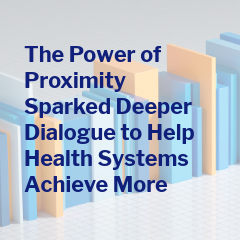
Prescribed Perspectives Industry News and Insights Center
Featured Insights
What's New

Benchmarking vs. Indexing to Get the Most Out of Your Health System Pharmacy’s Data
Subscribe Now
To learn how McKesson can help health systems achieve more, sign up to have the Prescribed Perspectives newsletter delivered directly to your inbox.
![System.Func`1[System.String]](/siteassets/images/z-mckesson-logosicons/health-systems2.png)





